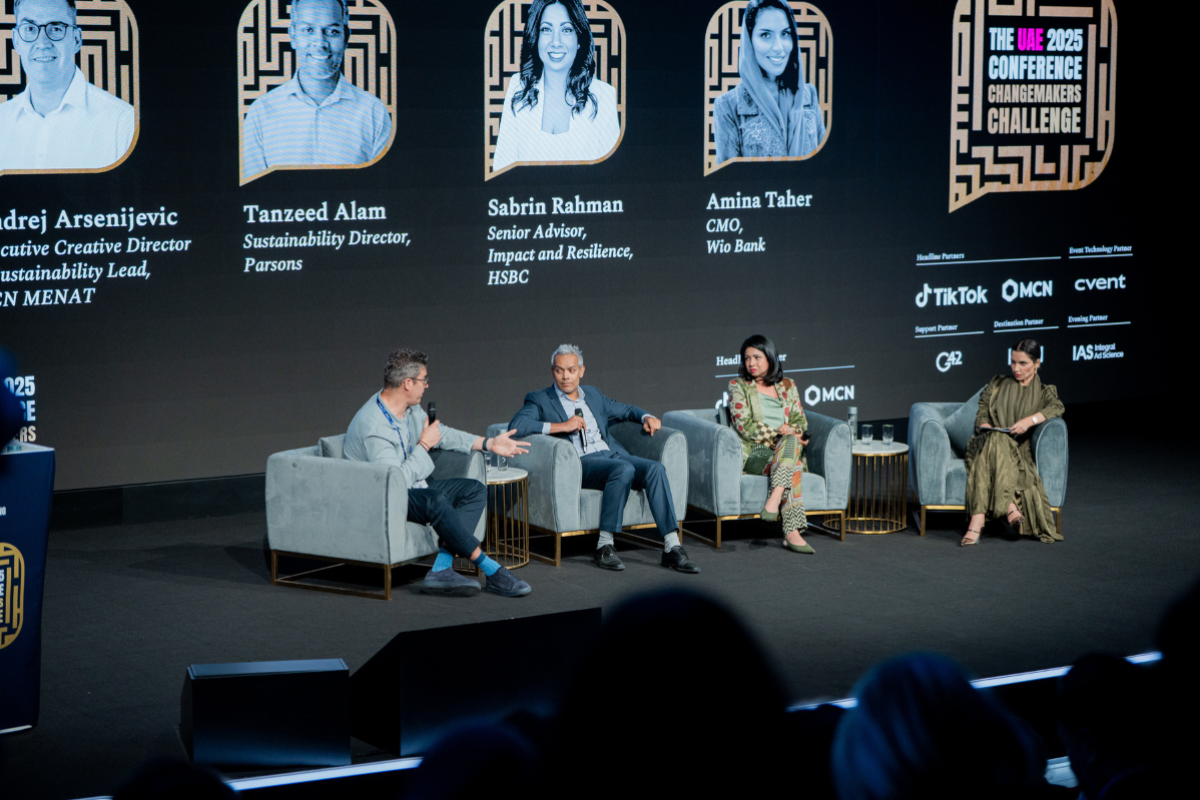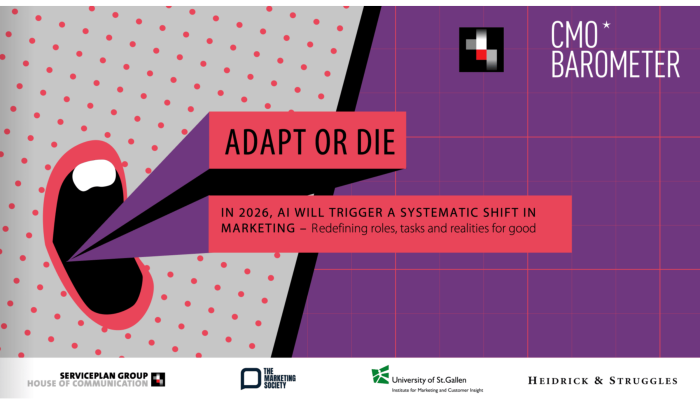Sustainability has moved from afterthought to business imperative; this was the start point of a panel discussion with leaders from marketing, infrastructure and finance at the Changemaker's Conference UAE 2025. Andrej Arsenijevic (Executive Creative Director & Sustainability Lead, MCN MENAT), Tanzeed Alam (Sustainability Director, Parsons) and Sabrin Rahman (Senior Advisor, Impact and Resilience, HSBC) debated the topic each adding their own unique perspectives and experiences.
The message was clear: greenwashing won't work, transparency does and marketers have a critical role to play in telling credible sustainability stories.
5 Key Points from the Session
Sustainability is now a trillion-dollar commercial opportunity
Sabrin from HSBC explained that sustainability has shifted from a siloed afterthought to a commercialised priority. There are trillions in opportunities through new acquisitions, products, services and sectors. Companies that embrace sustainability as a growth driver, not a cost centre, will win.
Climate change is already impacting the region
Tanzeed referenced the Dubai floods, which were made up to 40% more intense by climate change. These aren't theoretical risks, they're happening now. Parsons is at the forefront of designing stormwater systems and infrastructure to prepare cities for more extreme weather events. Marketers need to connect these dots for stakeholders.
Transparency beats greenwashing every time
Andrej and Tanzeed both emphasised that authenticity matters. Greenwashing scandals destroy brands. The Volkswagen emissions scandal is a textbook example. Be transparent about progress and setbacks - report honestly, learn from failures and implement changes. Credible storytelling is what builds trust.
Marketers are essential partners in sustainability transitions
Sabrin shared lessons from COP28, where the marketing and communications team worked directly with policy leads to handle daily press conferences. They brought together policy experts, farmers from emerging markets and private sector representatives to tell credible, multi-dimensional stories. That partnership between marketing and sustainability teams is what makes transformation believable.
Small actions at scale create massive change
Andrej's call to action: if 400 people in the room each start one thing better tomorrow, the compounding effect is huge. Sustainability champions aren't just executives, they're distributed throughout organisations. Empower them, support them and let them drive change from within.
The Tick-box Sustainability Days are Over
Sustainability used to be a box-ticking exercise, something you did to feel good or comply with regulations - that era is over. The panel made it clear: sustainability is now a business imperative, a growth opportunity and a reputational necessity.
Sabrin from HSBC opened by explaining how sustainability has evolved. 20 years ago, it was siloed, an afterthought. Now it's commercialised. There are trillions of dollars in opportunities through sustainable acquisitions, products, services and new sectors. Startups are building solutions. Established companies are transitioning. Investors are demanding progress.
She highlighted the role marketers play in this transition. The best partnerships she had internally were with marketing and communications colleagues who helped tell the story of trade-offs. Net zero targets sound great, but what does getting there actually mean? Which markets do we exit? Which communities get left behind? Those are hard questions. Marketers help distil those messages into something credible for clients, investors and stakeholders.
Tanzeed brought the conversation back to the UAE. He moved here in 2008 to work on sustainability and felt like an alien. The region is immensely consumerist. Brands push products, people consume but change is happening. The Dubai floods were a wake-up call. They were made 40% more intense by climate change. These aren't once-in-a-lifetime events anymore. Parsons is designing stormwater systems and infrastructure to prepare cities for more extreme weather. This isn't trendy - it's essential.
He challenged marketers to connect the dots. People complained about flooded cars and traffic jams but did they connect that back to climate change? That's where storytelling matters: make the connection clear, make it personal.
Authentic is they way forward
The conversation turned to greenwashing. Andrej and Tanzeed were adamant: transparency is the only path forward. Greenwashing destroys brands. Volkswagen's diesel emissions scandal is a textbook example. They promised pollution reduction but manipulated data. The scandal cost billions and destroyed trust. Authenticity wins, be transparent about progress, be honest about setbacks. Learn, implement and report.
Sabrin shared a masterclass from COP28. The presidency faced intense media scrutiny. Daily press conferences could have been disasters, instead, the marketing and communications team worked directly with policy leads to craft credible narratives. They brought together policy experts, farmers from emerging markets and private sector representatives. That multi-dimensional storytelling was what made it believable. That's the power of marketing and sustainability teams working together.
Andrej closed with a challenge: 400 people were in the room, if each person started one thing better tomorrow, the compounding effect would be massive. Sustainability isn't just a C-suite initiative, it's distributed. Empower champions throughout your organisation, give them the tools and support to drive change.
This wasn't simply a theoretical discussion, it was grounded in real examples, real challenges and real opportunities. The message was simple: sustainability is no longer optional, it's how you build businesses that endure.
3 Take-aways
from this
Sustainability is a growth opportunity, not a cost.
Frame it as commercial value creation, not compliance.
Transparency builds trust.
Be honest about progress and setbacks. Greenwashing destroys brands. Authenticity wins.
Marketers are essential partners in sustainability transitions.
Help distil complex trade-offs into credible stories for stakeholders.
2 Action Items
to take away
Identify your sustainability champions across the organisation
Empower them with tools, resources and support to drive change.
Audit your sustainability communications
Are you being transparent about trade-offs, setbacks and progress? Build credibility through honest storytelling.
"The UAE, 20 years ago, we were nowhere. Now we're a coalition builder with one of the most ambitious climate targets. That is branding, marketing, credible progress that is now a core part of our identity."
Sabrin Rahma



